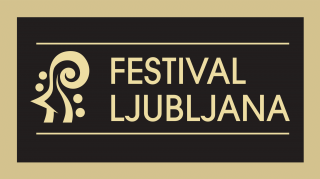Important information
Director: TOMAŽ PANDUR
Author of adaption and dramaturge: Livija Pandur
Translators: Božo Vodušek, Erika Vouk
Set designer: Sven Jonke (NUMEN)
Costume designer: Felype de Lima
Composers: Primož Hladnik, Boris Benko (SILENCE)
Video designer: Dorian Kolunđija
Light designer: Tomaž Pandur
Sound designer: Srečko Bajda
Language consultant: Tatjana Stanič
Make-up designer: Julija Gongina
Assistant to director: Jaša Koceli
Assistant to director(student): Jan Krmelj
Assistant to set designer: Iztok Vadnjal
Assistant to costume designer: Andrej Vrhovnik
Cast: Igor Samobor (Heinrich Faust) Brane Šturbej (Mephistopheles) Barbara Cerar (Madame Mephistopheles) Polona Juh (Margaret) Branko Jordan (Valentine) Uroš Fürst (Head of Cabinet) Robert Korošec, Filip Samobor, Žan Perko, Matic Lukšič (Cabinet)
In the style of the motifs of the medieval legend about Dr Faust, and Goethe’s two-part tragedy, as well as studies and artistic works inspired by the history of a man who sold his soul to the devil.
Director Tomaž Pandur’s theatre project Faust is based on Goethe’s masterpiece. On this basis it uncovers fragments of this extraordinary work, where the history of the legend’s development and its expansion into broader moral and philosophical contexts simultaneously portray the intellectual history of humanity.
Although it is based on the medieval legend of a man who sold his soul to the devil, it is in fact a treatment of the feeling of contemporary man’s alienation, as well as man’s need for self-awareness and understanding of the world in which we live. Throughout the centuries the story transformed into the archetypal myth of human aspiration and dilemma, as he struggles to understand his placement within the broader context of the universe. It was named a divine tragedy, as it explores both the micro- and macrocosmos, with the private and the public, and with the question of cognition itself. The levels of Faust’s life and his confrontation with Mephisto are logical equations, poetic phenomenology of the human variety. Goethe’s conviction is that the struggle between good and evil is what drives humanity, and this helical dialectic is the foundation of his unswerving faith in humanity’s future:
Faust: Who are you, then?
Mephisto: I am part of that power which eternally wills evil and eternally works good.
When Pandur alchemically transforms Faust’s legend into the intellectual and emotional atmosphere of our times, constructing his own Poetry and Truth, as everything that comes to the stage is transformed, creating its own stage language. In the middle of the eternal struggle against omnipresent evil he establishes a yearning for everything that is inaccessible or unattainable: family, love, youth and beauty. The entrance into the realm of magic, the region of the cosmic sphere, makes experience and fulfilment momentarily possible for Faust, as well as love, authority, and power, but the contract he signed with Mephisto or with himself returns him at the end to loneliness, age, and the transience of life.
In his own “theatrical world” is he alone against the world, or is the world against him? Is he God or a slave? And is it even possible to reach an understanding of what is “when”, “how”, and “where”? The discourse on alienation and fulfilment, the hallucinating and the hallucinogen, evokes the whole human tragedy by attempting to discover the truth that is common to all people and, at the same time, was the culmination of his life.
Dealing with one of the greatest European myths inspired Pandur to take on a fresh and new interpretation of the Faust legend, which dissects Faust’s psychological profile, his fears, loneliness, love and passion. At the beginning, Heinrich Faust, at the height of his intellectual power but also in the troughs of despair, is completely lost and on the verge of suicide. The only thing he wants is to feel the moment when he can say: “Stay a while! You are so lovely!”
How does he find and feel it? Where is it hidden? In his despondent and self-destructive state, in the blink of an eye we enter Faust’s inner reality, into fragments of his real and imaginary world, into his quest for that never-ending moment of happiness and fulfilment. We are seeking the same thing he is. And this search never ends.
(L. P.)



